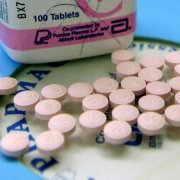- Pharmacotherapy-based withdrawal regime
Diarrhoea
- Atropine Sulphate/Diphenoxylate Hydrochloride (Lomotil)
- Loperamide Hydrochloride (Imodium)
- Drink plenty of fluids - 6 - 8 glasses of water a day
- Eat regular meals
Headaches
- Paracetamol (Panadol)
- Massage
Nausea and Vomiting
- Metoclopramide (Maxolon)
- Prochlorperazine (Stemetil)
- Eat small meals and snacks often
- Drink plenty of water
- If vomiting, stop eating solid food and try small sips of liquid, or sucking an ice cube. Try a small amount of food once you have kept fluids down for a few hours
- Rehydration/sports/isotonic drinks such as ‘Powerade'
- Avoid citrus and caffeine on an empty stomach
Anxiety and insomnia
Stomach cramps
- HyoscineButylbromide (Buscopan)
- Have a bath
- Use a heat rub/ wheat bag
- Massage
Aches and pains
Cravings
- Remove ‘cues’ or reminders of use as these intensify craving.
- Keep busy, use distractions
- Focus on what is happening at the moment and take each hour and day as it comes. Thinking too far ahead can often be overwhelming and counterproductive.
Sweating & hot and cold flushes
- Have regular showers or baths
- Paracetamol

